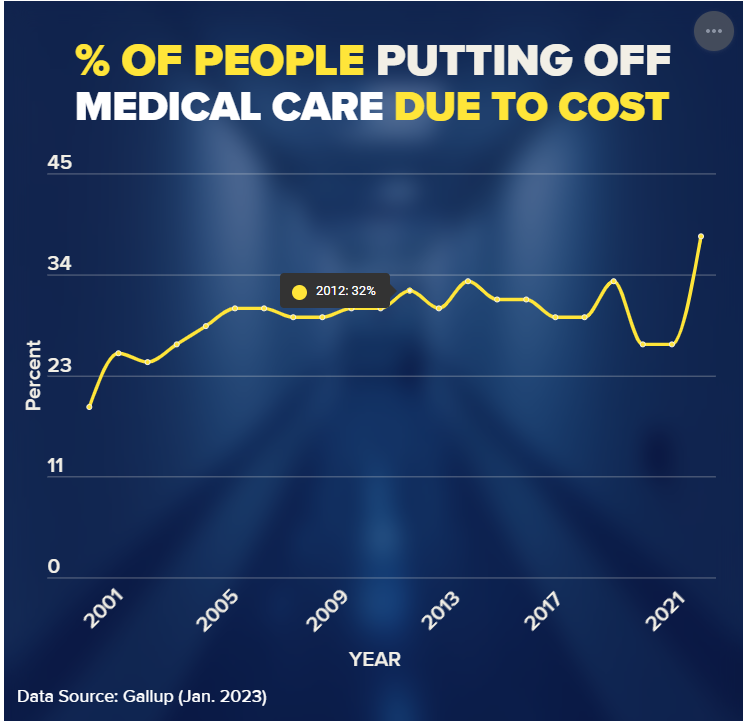How Inflation is affecting Patient Health
- melissa mullamphy
- Mar 16, 2023
- 3 min read

This picture is as of January 2022 and shows that 38 percent of people are putting off medical care and medication due to inflation. This is a dangerous number because, theoretically, the same patients have probably put off care due to the pandemic. Things like annual mammograms, colonoscopies, gynecological check-ups, annual physicals, preventative screenings, and specialist appointments.
Source: (NewsNation) — https://www.wavy.com/news/national/inflation-has-patients-delaying-medical-care-risking-their-health/
As Americans grapple with high inflation, health experts say more patients are putting off medical care, which they fear could lead to worse health outcomes.
Today's financial concerns are just the latest setback highlighting a problem that began three years ago when millions were forced to cancel doctor appointments and preventative screenings due to the coronavirus.
“The patients that are coming in have delayed care and so they’re actually sicker than what we were experiencing prior to the pandemic,” said Dr. Laura Zimmermann, the division chief of general internal medicine at Rush University Medical Center in Chicago.
Now, Zimmermann says more people are postponing care due to cost specifically. It's a trend that's been observed in recent surveys. In a recent Gallup poll, the percentage of Americans putting off health care due to cost hit a record high (40%). Additionally, 28% of consumers said they feel less prepared for unexpected medical costs than they did a year ago, according to a separate study in November from Deloitte Insights.
Asif Dhar studies health trends as Deloitte's vice chair and U.S. life sciences and healthcare industry leader. He's worried the rising cost of nutritious food and skyrocketing rent prices could exacerbate medical problems on top of delayed care.
Patients are discovering that they have cancer, and it is staged out. For multiple reasons, they did not seek care, which has made things worse for them.
That reality may end up costing patients and health systems more in the long run, particularly if serious diseases such as cancer go undiagnosed.
“If you let it go … the more expensive it gets, the harder it is to treat and the worse the survival rates,” Dhar said.
Historically, the cost of medical care has outpaced prices in the rest of the economy, but over the last year, medical costs increased much more slowly than overall inflation, according to the latest Consumer Price Index.
But inflation can make going to the doctor more expensive in other ways. When money is tight, people may be less willing to take time off work or pay for the gas to drive to an appointment. They might have to choose between missing a day's pay versus putting dinner on the table. Inflation is also affecting those living in rural and low socioeconomic areas where they have to drive a long distance for care.
In a survey last year, 44% of participants said they avoided healthcare services because they didn’t know the cost, up from 25% the year prior.
Two years ago, a new hospital transparency rule took effect that was supposed to provide consumers with clear, accessible pricing information. But recent studies suggest hospitals have been slow to comply.
An analysis published in January found only 19% of the hospitals studied fully satisfied the Centers for Medicare and Medicaid Services (CMS) rule, which requires hospitals to post estimated costs for standard healthcare services. Other studies have found broader compliance (closer to 70%) pertaining to transparency requirements on hospital websites.
“We (humans) naturally fear the unknown. … We don’t know what the cost might be associated with (medical care) and out of that fear it’s completely natural that we would avoid the situation,” said Nicole Broadhurst, a patient advocate and the founder of Tennessee Health Advocates."
Finally, due to nurse terminations, nurse shortages, and professionals leaving the profession, wait times for appointments is also a problem. We are in a mental health crisis and it is roughly 3 months or more to get an in person appointment if you are lucky.







Comments